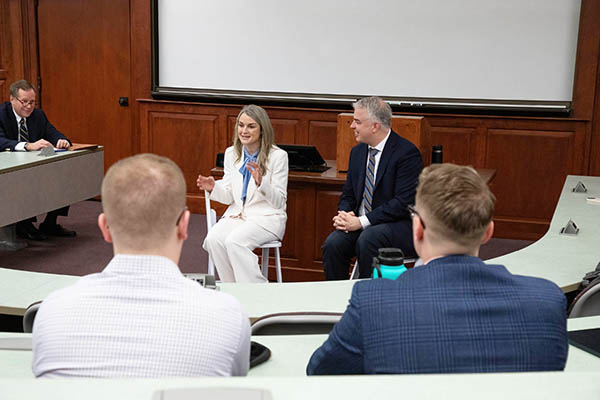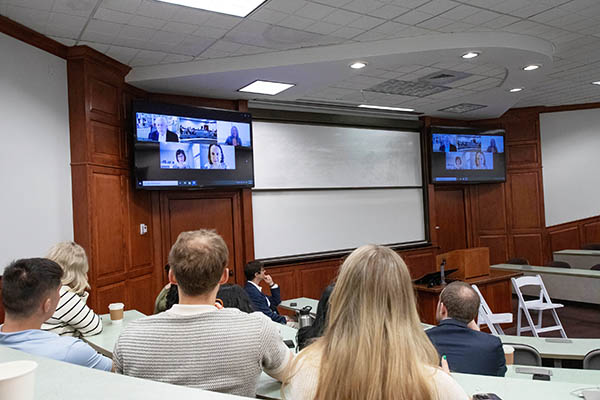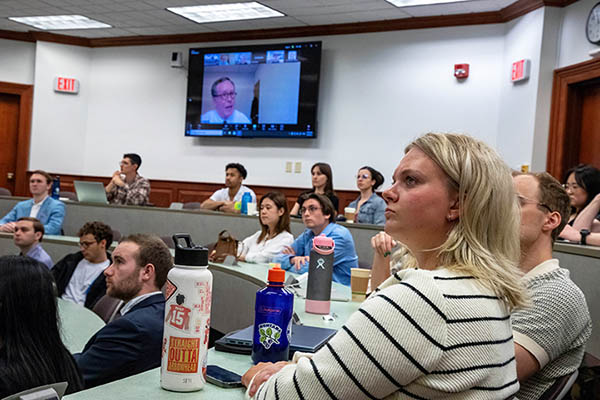Business Law Review Welcomes Back Co-Founder for Symposium Focusing on Rapid Changes Across the Legal Community
William & Mary Law School’s Business Law Review (BLR) held its fifth symposium on Friday, April 4. The goal of this year’s event was to help foster dialogue between members of the legal community to help students learn how the business law world is reacting to the changes that have been occurring the past few months and what to expect throughout 2025 and beyond.
The symposium started with a fireside chat with guest alum, Brit Mohler Dufilho ’11. Dufilho was a co-founder of BLR and served as its second Editor-in-Chief. She now works as a partner at Hunton Andrews Kurth LLP in Richmond, Va.
During the fireside chat, she and former classmate, Brian Wall ’11, Associate Dean for Student Affairs & Academic Support, discussed her experience working to set up the journal, her career after graduation, and recent shifts she has seen in the field of business financing transactions.
 The symposium continued with a Zoom panel discussion moderated by Nicole B. Porter, Rita Anne Rollins Professor of Law at the Law School. Porter’s guests included Vanessa Williams ’95 of Kelly Group, Leslie Marlin of FINRA, and Jerry Maatman of Duane Morris LLP. Together they explained the ins-and-outs of trends in employment law, challenges of their work, and common misconceptions.
The symposium continued with a Zoom panel discussion moderated by Nicole B. Porter, Rita Anne Rollins Professor of Law at the Law School. Porter’s guests included Vanessa Williams ’95 of Kelly Group, Leslie Marlin of FINRA, and Jerry Maatman of Duane Morris LLP. Together they explained the ins-and-outs of trends in employment law, challenges of their work, and common misconceptions.
The symposium closed with another Zoom panel, this time focusing on changes to the securities market. Moderator Professor Paul Eckert was joined by Professor Karen Woody of Washington & Lee Law, Joe Brenner of WilmerHale, and Professor Urska Velikonja of Georgetown Law. The conversation had many threads, but focused in particular on the SEC’s treatment of cryptocurrency regulation and how changes in administrations can impact enforcement patterns.
Spencer Daus-Haberle ’25, Editor-in-Chief of BLR Volume 16, said that students were happy to hear from the participants, who shared how their respective fields were changing and adapting to various external and internal pressures.
“Symposiums offer law journals a chance to hold legal dialogue through conversation, rather than on the page, and are a welcome change of pace for staffers involved,” Daus-Haberle said.
He added that overall, BLR believes that law journals could not perform their core function if thoughtful members of the legal community did not share their time, either through speaking or writing, with them.
“BLR is very grateful to have had so many dedicated members of the legal community join them for their symposium,” Daus-Haberle said.